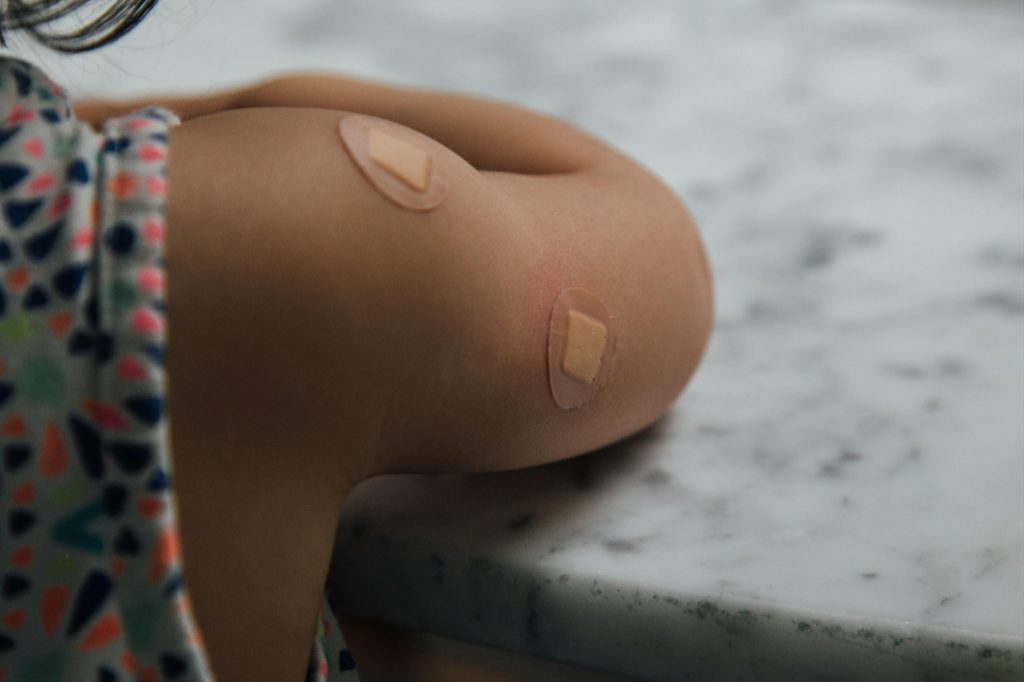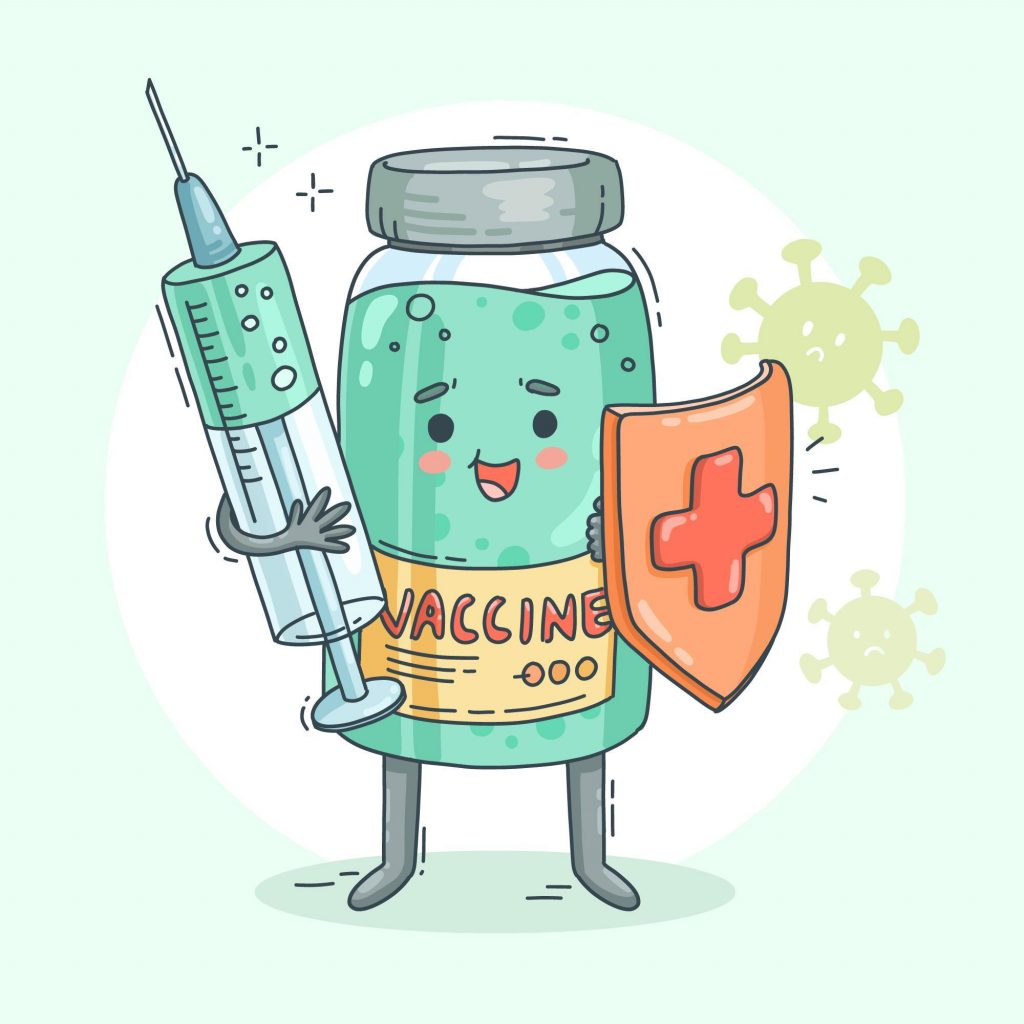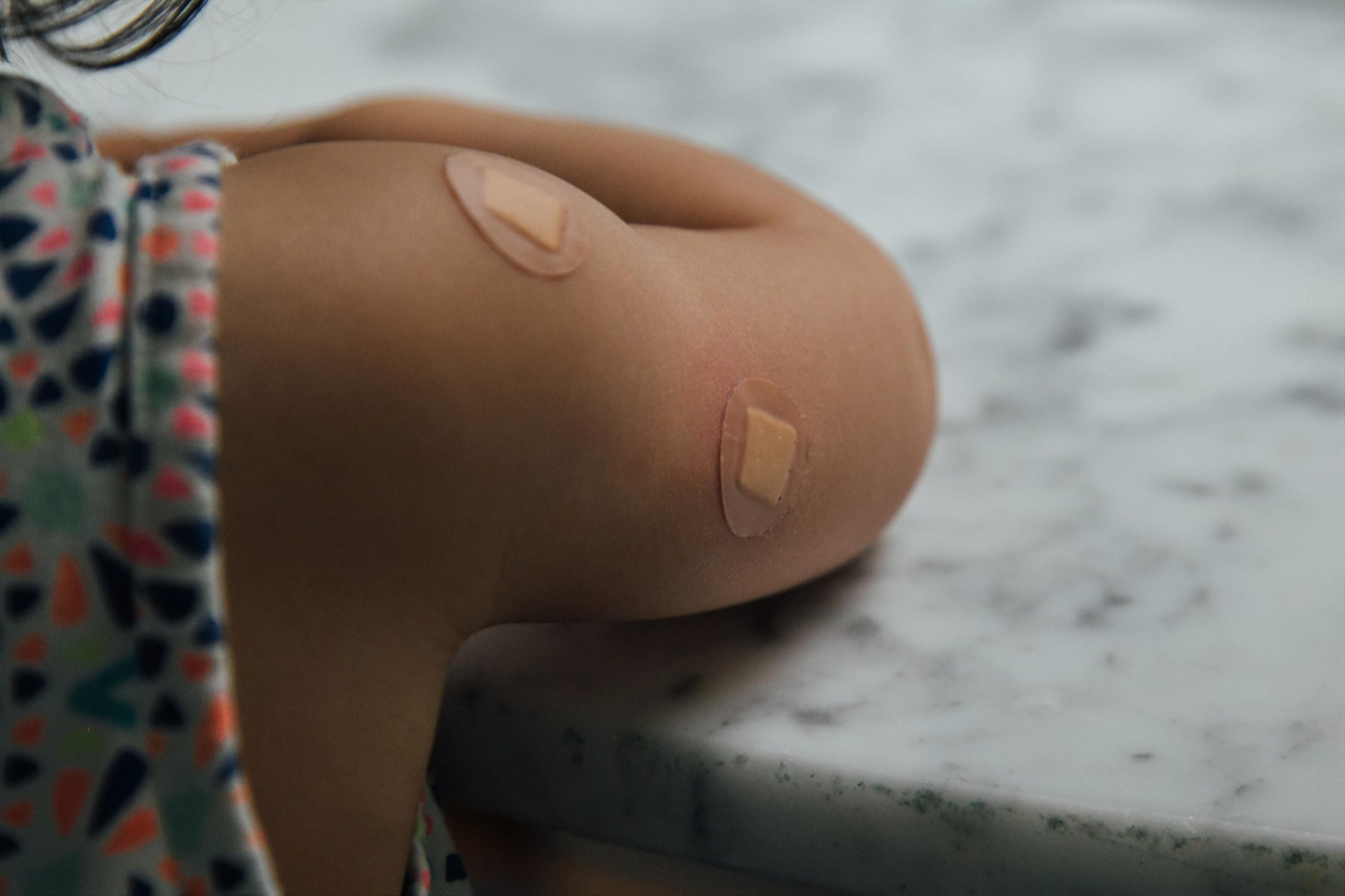Immunizations will be an essential part of your baby’s life, especially in the first 6 years. Understandably as a parent, you’re bound to be concerned and worried for your little one, especially when you know there’s a risk of side effects post vaccinations. But is there really a need to worry? Read up about common vaccination side effects to look out for, and why they’re a perfectly normal aspect of immunizations.
Which Vaccines Are Children Given And When
Before we get to common vaccination side effects, here’s a brief overview of what vaccines your child should get. India has two immunization schedules, the NIS (National Immunization Schedule) and the IAP (Indian Academy of Pediatrics). The NIP is the schedule followed by the government, and under it, children are vaccinated against seven preventable diseases – Measles, Tetanus, Polio, Diarrhea, Pertussis, Diphtheria, Haemophilus Influenzae type b (Hib), and a form of Childhood Tuberculosis and Hepatitis B. These are the most important vaccinations for kids.
The earliest vaccines can be given as early as at birth. Over the next few years, they will receive most of the vaccines, with booster shots for various vaccines extending till the age of 12-16.
Why Do Vaccines Have Side Effects
As parents, the last thing you want is to see your child suffer or be in pain and discomfort. Needless to say, seeing them go through uncomfortable side effects can leave you feeling stressed and worried. But knowing just why these side effects are a common reaction can help you lower your worry and instead focus on comforting your child.
In simple words, scientists develop the vaccine for a virus using either an extremely weakened strain of the virus, part of the virus, or an inactive virus. Every vaccine goes through rigorous testing and in no way can it cause the disease. When the vaccine enters your baby’s body, it alerts the immune system, which in turn makes antibodies that fight off the virus. This enables your baby’s body to recognize the vaccine and fight it off if your baby were ever to come in contact with the illness post-vaccination.
Mild side effects after vaccination are a sign that it is working, and that your baby’s body is producing antibodies. This is a sign of immunization against that particular disease or virus and is definitely no cause for panic.

Your child may get some soreness around the spot of the vaccine.
Common Vaccination Side Effects And How To Treat Them
The following is a list of the most common side effects your baby may exhibit post a vaccination.
- Fever (anything above 99° F)
- Swelling or redness when the needle punctures the skin
- Restlessness or drowsiness
- Small reddish bump at the site of the injection (It might persist for a few weeks)
All of these side effects are temporary and completely normal. There is no cause to be concerned about your child. Make sure your baby is well hydrated and as comfortable as possible to deal with most of these side effects. It’s likely that your baby will also be cranky, so make sure you comfort them until the side effects wear off. For redness and swelling, use a cold damp cloth to cover the area. Keep the baby in clothes that breathe. Do not make them wear anything heavy or something that covers their whole body.
Speak with your pediatrician on what side effects to expect, since some vaccines may elicit different side effects. They will also let you know when to worry about an adverse reaction to the vaccine. Nonetheless, you can read up about some uncommon side effects here.
Uncommon Side Effects And How To Deal With Them
Although the chances are slim, it is possible that there might be some adverse reactions and uncommon side effects. These can sometimes also be indicators of a deeper problem, like a pre-existing condition or an allergic reaction. Here’s a small list of uncommon side effects:
- Anaphylaxis – An almost immediate and severe allergic reaction, it can show up 15-30 minutes later. However, it can sometimes happen after a few hours or days. Immediately get your child medical attention, making sure to inform the medical professionals that your child had recently been vaccinated, and give them proper details from the child’s vaccine record.
- Rash and Eczema – Red patches and itchy skin all over the body. Contact the pediatrician immediately if these appear.
- Severe infection growing from the site of the vaccination
- Seizures
- Eye infection
- Bowel blockage
All of these side effects are extremely rare. If they occur, contact your pediatrician immediately.

Knowing more about vaccines helps you realize how beneficial they are for kids.
Vaccine Hesitancy
Information about severe side effects is the reason some young parents hesitate to get their kids immunized. We would like to encourage you to not follow their examples. All vaccines are made after years of medical research and are safe to be administered. Any and all severe side effects that occur usually occur because of the vaccine’s reaction to the biology of an individual person.
A few ways in which you can be more prepared are by prepping your child for the vaccine, knowing all about certain vaccine precautions, as well as knowing more about what to expect after the vaccine.
Conclusion
We know that as parents, you only want the best for your child. Sometimes, this means putting them through the mild discomforts of a vaccine and its side effects in order to immunize them from far worse. When in doubt about common vaccination side effects or any other medical concern, turn to your pediatrician before you turn to Google. If you use the ImmunifyMe app, you can get easy consultations with established pediatricians to put every concern to rest.
FAQs On Common Vaccination Side Effects
How Long Do Vaccine Side Effects Last?
Most vaccine side effects like fever and swelling last for a few days at the most.
Side effects like red bumps last slightly longer and might persist for a few weeks or so.
How Many Vaccines Are Given To A Child?
As of 2021, there are 16 basic vaccines that children in India receive. Each vaccine has its own schedule that parents and pediatricians are expected to adhere to. Pediatricians and general physicians can administer booster shots for vaccines until the age of 16.
What Is A Completely Immunized Child?
A fully immunized child is one who has received all vaccines under the National Immunization Schedule before turning 1 year old. The two major milestones of India’s Universal Immunization Programme have been the elimination of polio in 2014 and maternal and neonatal tetanus elimination in 2015.
What Is A Traditional Vaccine?
A traditional vaccine is one that helps the body develop antibodies, and allows it to combat the infection on its own. The main objective of the vaccine is to help the body recognize and fight the virus, and immunize it for the future. There are four main types of vaccines:
- Live-attenuated vaccines – chickenpox, measles, mumps, rubella.
- Inactivated vaccines – Hepatitis A, Rabies
- Subunit, recombinant, polysaccharide, and conjugate vaccines – HPV
- Toxoid vaccines – tetanus, diphtheria






